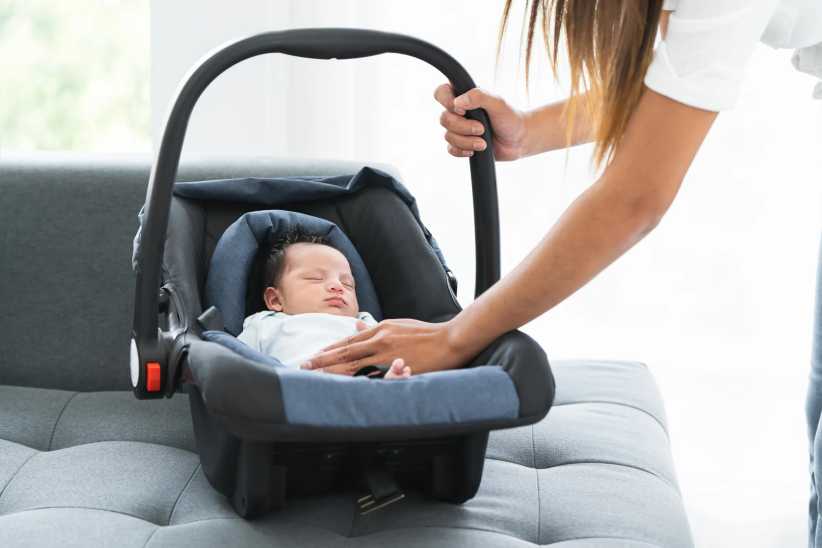 The research keeps piling up showing the vital need we have for sufficient, quality sleep, and yet most of us will be climbing into bed tonight at 11:30pm with our iPads on the nightstand, ready to wake us in the event of a 3am email. Despite our own refusal to put an emphasis on sleep, we expect our babies to snooze peacefully for 14 hours a day, without any kind of instruction or skill development. Sleeping soundly, and sleeping well, is a skill, and like any other, it needs to be learned and practiced in order to be mastered.
The research keeps piling up showing the vital need we have for sufficient, quality sleep, and yet most of us will be climbing into bed tonight at 11:30pm with our iPads on the nightstand, ready to wake us in the event of a 3am email. Despite our own refusal to put an emphasis on sleep, we expect our babies to snooze peacefully for 14 hours a day, without any kind of instruction or skill development. Sleeping soundly, and sleeping well, is a skill, and like any other, it needs to be learned and practiced in order to be mastered.
Learn to Spot the Signs of Overtiredness
Overtiredness in children manifests in strange ways, the most counterintuitive being hyperactivity. Parents will often see their child tearing around and defiantly avoiding bedtime, and make the natural assumption that they’re just not tired.
This is typically caused by the brain releasing a burst of cortisol into the bloodstream in order to compensate for what it sees as the need to stay awake. It assumes there’s a reason the child hasn’t fallen asleep at the predicted time, so it revs up their system again.
The Importance of Bedtime Routines
Following on the last point, our bodies work in sync with the 24-hour clock, and release sweet, soothing melatonin when the sun starts going down, and rich, invigorating cortisol when the sun starts to rise. Since we’re not living outdoors anymore, our bodies can’t rely solely on the sun to tell us when to fire up the production, so we need to help it along.
We can do this by establishing a bedtime routine, and following it at the same time every night. Most of us have some version of a routine, but the problem is that we also tend to stare at our iPads, check our email, and think at length about what we need to get done the next day. The more we can add elements that relax the mind, and take away the ones that stimulate it, the more effective the routine.
Creating a Sleep Sanctuary
Building a nursery is such a beautiful, tangible way of preparing for your baby’s arrival. However, outside of some soothing color and blackout blinds, just about everything you add to a baby’s bedroom is just a distraction from its purpose, which is a place for your baby to sleep.
Mobiles, star projectors, night lights, and light-up aquariums may seem soothing, but lights and music are actually quite stimulating for an infant child. Spend that money on a high-end mattress, some cozy sheets, and a great pair of PJs, and your baby will reap the benefits.
[gravityform id=”15″ title=”false” description=”false” ajax=”true”]
The Importance of Naps
Kids need a lot of sleep, and they can’t get it all in one nighttime session. Newborns, for example, should be getting between 14-17 hours of sleep every day. Needless to say, the need for calories will prevent that from happening in one consolidated stretch. Daytime naps are essential for rejuvenation, building muscle, secreting growth hormones, and preventing the dreaded overtiredness that threatens to derail baby’s carefully implemented sleep schedule.
Sleep is a Skill
For kids especially, sleeping needs to be learned and rehearsed in order for them to get the most from it. Like most mammals, humans sleep in cycles, going from light sleep to deep sleep and back again, and we often wake up between them. Adults typically remain in a somnolent state when this happens, and rarely remember it, but infants and toddlers who have not learned independent sleep skills can often become agitated when they wake up, which makes it difficult for them to fall back to sleep.
Teaching your little one to recognize their crib as a place for sleeping, and helping them understand how to make the transition between consciousness and peacefully snoozing without the need for parental intervention prevents that agitation, resulting in a more relaxing, more consolidated night’s sleep for both baby and parents.
Dana Obleman is a parenting and sleep consultant, and is the creator of the Sleep Sense Program.
To learn more, visit sleepsense.net!












